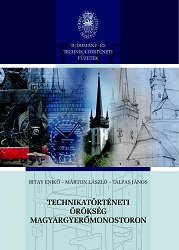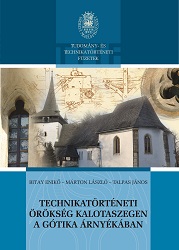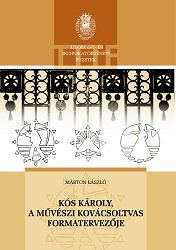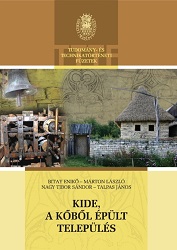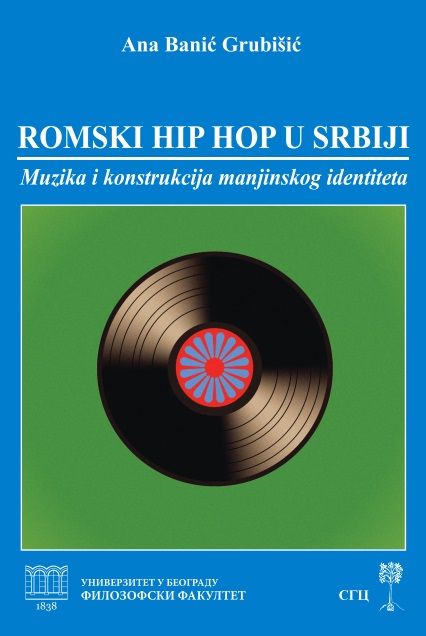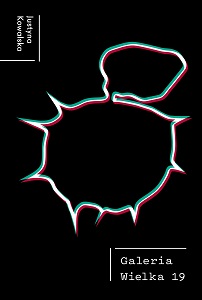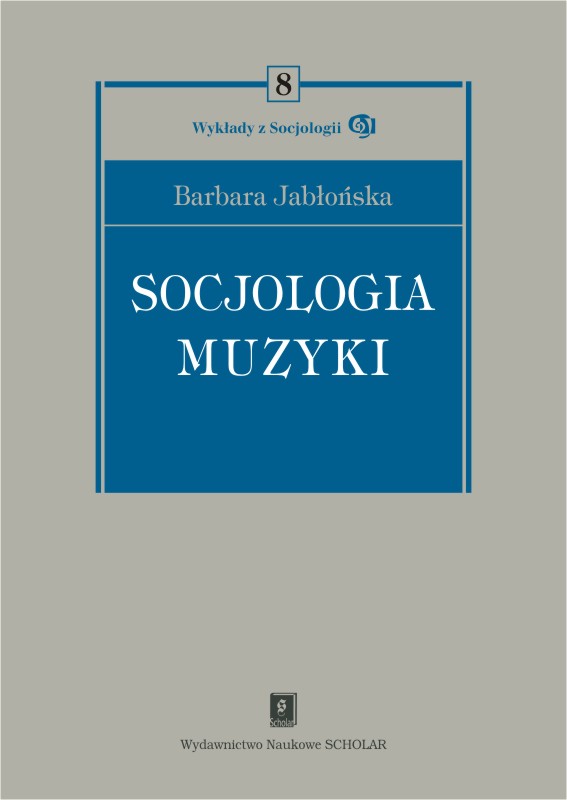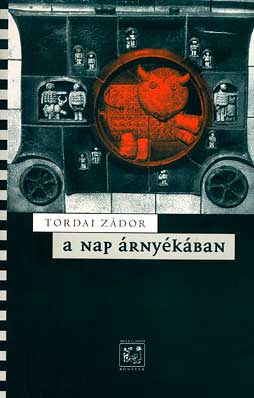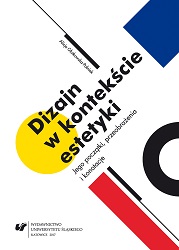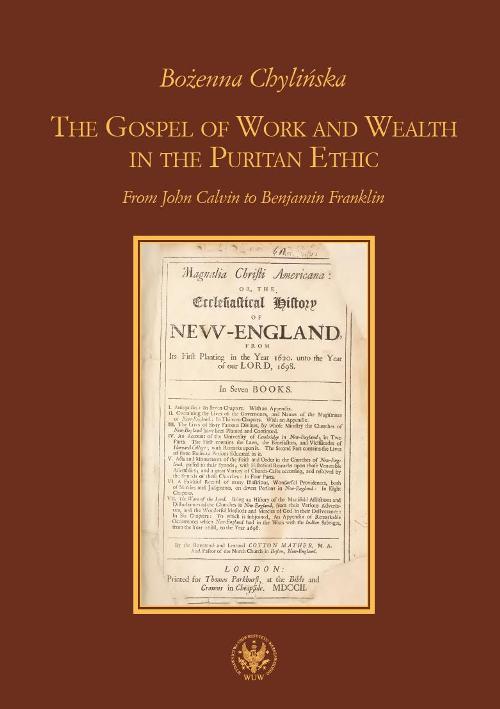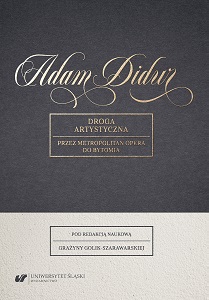Author(s): László Márton / Language(s): Hungarian
Engineering and creative work of the architect, writer, illustrator, and politician Károly Kós, is analyzed by extensive studies. Spirituality and creativity of Károly Kós, which in all their details are Transylvanians and they are also components of general culture. The architecture of Kós is an essential art, because all its elements, including ornamentation have a central tendency, harmony.In his ornamentation revives the forms of folk art, used in wood carvings, tiles, embroideries of the Szeklerland and Nagykalota regions according to the requirements of material usage.Humans have been using for even over five millennia. In the Middle Ages, the artistic wrought iron used in the structure of European cathedrals is found both in outdoor and indoor spaces. Wrought ironing as an architectural increase, like any other artistic product, reflects the spirituality artistic eras in which it was created.The beginnings of wrought iron use as an architectural ornament relates to the early year of the second millennium, with roots in ancient Greek and Roman era. During the Early Middle Ages, in the Byzantine Christian architecture, this legacy was transposed in a new style, called romantic style.In the twelfth and thirteenth centuries, due to some profound changes a new direction; a new style appeared in architecture, named Gothic. Paintings in the form of semicircular paintings are replaced by broken arch paintings, pointed arch. The changes in construction entail also changes in wrought iron design.In the twelfth century began a radical change in forging ironing due to the use of increasingly large scale water wheel. Heavy hammers of forging workshops are driven by the energy of water wheels.In the fifteenth century, in Italy appears a new artistic trend, the Renaissance. Ancient architectural traditions are found without being copied, and are developed with elements unused by the time. In Transylvania existed all of these conditions as a new style of architecture, to take root and spread rapidly. The art of wrought ironing keeps up with the new architectural style and in the same time creates a characteristically language of expression, in accordance with the architecture.The Renaissance style and the art of wrought ironing as a component of constitutive architecture of the centuries goes in parallel with the past, with a gothic style, but also with the next one, named the Baroque.From an architectural point of view, the era recorded by the history of art is Baroque.The rigorous regular forms, characteristic of Renaissance are followed by irregular style, recorded in the art history as the Baroque style.Nineteenth century is the century in which wrought ironing reached its peak. At the beginning, it could be seen different ways of searching in tradition, inheritance of this art. New styles have arise with an ephemerally lifetime such as empire, romanticism, historizmus, neo-rebirth, neo-baroque, with the respective adherents.As they appear, these styles disappear or remain only as the art of curiosities. Everything happens as a result of industrial development, industrialism, which determines new values and new standard requirements. Art of wrought ironing is to be dominated by commercial elements also creation of this domain is to be limited to single joints.In the second half, of the nineteenth century appears a new style of art, which strongly manifested in architecture and opposes all of the current artists. This trend is secession that is art nouveau. Renounces of the ancient forms are to be followed the model are to be found also in Japanese art and uses ornaments of folk art. Secession as a modern architectural style carries out this recent aesthetic by merging elements of folk art and with Japanese art symbolizes them especially in architecture. Also in the nineteenth century is developing more powerful, the necessity of creating an architectural line, which apart from the current fashion highlights the local national character. The challenges take concrete form in the twentieth century.Historical architectural styles were quickly separated from their place of birth, spreading throughout Europe. National style is the biggest challenge for architects. Since college years, Károly Kós seeks for his path to pursue a career and to be able to create a style of his own. In his architecture dominates large areas, simple, smooth without ornaments. The dimensional proportions of doors and windows, exterior or interior rails of the buildings grids are inseparable parts of the building and make a unique architectural ensemble, specific to the creator. Specific architectural language of the artist opened a way that can be recognized unmistakably without any doubts, over and over again.In Transylvania, the association that gathers craftsmen is guild. In the cities of Fãgãraº, Târgu Mureº, Odorheiu Secuiesc, Miercurea Ciuc, Turda and Aiud are powerfully organizations of guild (strong guild organizations). Here are also included blacksmiths, locksmiths, who deals with wrought iron. During Transylvanian principalities a large number of craftsmen, blacksmiths and locksmiths settled in Sibiu, Braºov, Mediaº, Cluj, Sebeº, Orãºtie. Through their work, these cities have become true centers of wrought iron art. In the nineteenth century it is almost inconceivable that a public building has not got iron elements. Palaces, churches, cathedrals, used increasingly the pieces of wrought iron as the parts of the buildings. Their variety is overwhelming, but even in the twentieth century, the searches, and the experiments in that domain characterize the entire activity.The foundation of our popular medieval art and the architecture, it is our national folk art, said Károly Kós. This actual statement led his whole young life. He declared, that folk art is an organic unity with its creator, the people. Only some people are able to create only spiritually united with the people, the artist can create his own artistic language. He advocates that, Transylvanian folk art is rooted in medieval art.Western European art is to be appeared in Transylvanian, after going through a specific change and became part of the Transylvanian culture and civilization. It is noticed that the carved stones metal objects in for general use have the ornamentation elements of folk art. Therefore, his work can be seen all of the popular ornamentation belongs. All of his works are rustic simplicity, but this simplicity doesn’t reduce its artistic value. Wrought ornate, hinges, handles and shields of them are unique creations, unique buildings to be found.In the field of architecture his activity and philosophy are linked to the spirituality and current architectural of the British architects like John Ruskin, William Morris and Finnish architect Akseli Gallen Kellela. He is an artist, a craftsman and in the same time competent of processing iron. In the design he takes into account these properties of iron.He starts working as an architect in Hungary. Here is he establishing the first project of public buildings, such as the Budapest Zoo Pavilions, the Church in Zebegény, the Parish and prayer house in Óbuda. The District of Veker and the School on Városmajor Street in Budapest, form an architectural unit. Each building is unique in the way in his unmistakable style. Each design is a complete wrought iron work, each element is perfectly lined with the work, which is actually a whole.A feature of his personality is the fact that the projects implemented by Kós are very detailed, with precise construction details. The rustic simplicity, decorative elements of folk art inspired ornamentation features are only summaries of his work. Besides the aspects inspired by folklore, his whole creation has a tendency to evoke a long-forgotten Middle Ages.Handles made of wrought iron are also decorated with motifs taken and processed their own style of the popular art of C?lata and Szeklerland area. Wrought wire handles, shields perfectly match door handles or colonnade of solid oak, with the actually building.In his wanderings in Transylvania he was able to study many relics of medieval construction. Gothic fittings loaded prevailing entire surface of the door has inspired artists in their own style training in the art of wrought iron. The hardware designed by the artist is much simpler, and, at the same time, maintaining the assurance characteristic of safeness and durability. From the house of Stana the hardware shutters are a typical example of rustic hardware.Rails of grids were designed to have dual functionality. On the one hand these provide space limitation function, and on the other hand it embroiders. These gratings are distinguished from any other style through their decorative elements. Birds, stars, flowers, are elements of popular ornamentation.Today, the wrought iron art can have a new revival. Materials are diverse, there are specializations at all levels of education, and there is a model to follow. Creativity of those who practice the wrought iron art today has to meet the customer’s requirements. And only then a productive way will be found, that can benefit everyone.
More...


